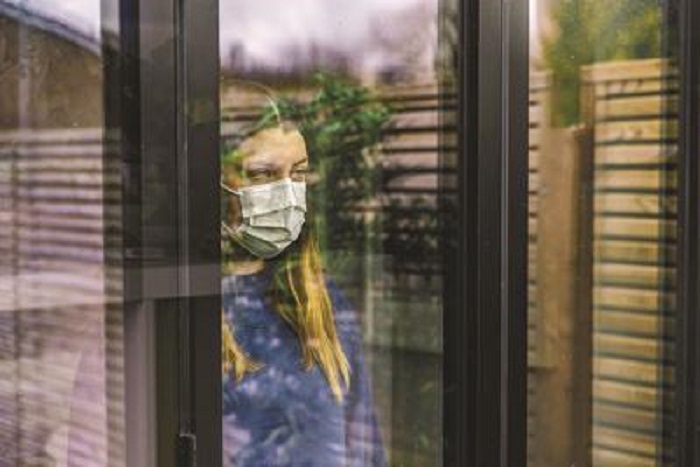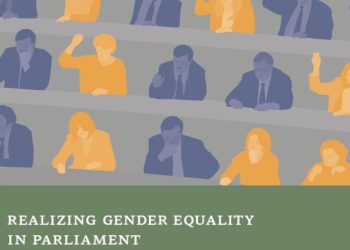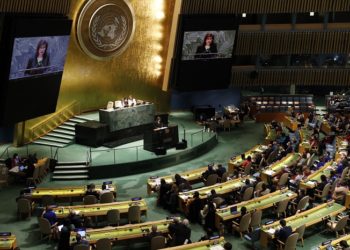Many countries in the world have put tough restrictions in place due to COVID-19 that do not allow people to leave their homes. This situation has brought forth a very serious issue: many people are forced to stay in lockdown at home with their abusers and this is a problem in Armenia as well.
Nightmare lockdowns: the fight against domestic violence in France
According to international media, about 200,000 women in France have been trapped in lockdown with their abusers.
According to the French interior minister Christophe Castaner, cases of police responding to domestic violence across the country have jumped by 36% since COVID-19-related restrictions have been imposed. In light of this, the French government announced it would pay for hotel rooms for victims of domestic abuse for 20 thousand nights and would also set up temporary counselling centers in supermarkets.
In the beginning of January, a very strict quarantine was announced in China where the coronavirus outbreak started. As a result of this, the number of people falling victims to domestic violence tripled. This data was published by the Association Against Domestic Violence of Hubei Province.
In a number of European countries, hotlines for domestic violence victims are not operational due to the lockdowns, while relevant organizations are not able to shelter those in dire circumstances.
Fortunately, towards the end of March, the French Minister of Gender Equality said that particular service had been restored but the number of calls were not higher than usual considering the fact that women may not always be able to call for help while trapped with their abusers.
To help victims of domestic abuse, France, Italy, and Spain have introduced new schemes for aid. Now people in need of assistance can go to pharmacies and ask for help there. However, if for some reason they won’t be able to do this openly, then they can ask for help using the code word “Mask 19.”
Australia too has reported of a surge in domestic violence cases. The government reported that during the beginning of the coronavirus outbreak, reported domestic abuse cases rose by 75%. The government has earmarked 150 million Australian dollars for supporting victims of domestic and sexual caused by the COVID-19 pandemic.
Russian RIA Novosti has reported that cases of domestic surged in Russia as well amid the lockdown. Here it is not only women that fall victim to abuse but also the elderly. Deputy Head of the State Duma’s Committee on Women and Children’s Issues, Oksana Pushkina has noted that many calls have been received these days, and the situation is even more complex now as many crisis centers in the country have now closed, albeit their total number was not more than 15. In addition to this, Russia has not adopted legislation countering domestic violence and the consequences of all these become more apparent by the day.
What is the situation in Armenia?
In the statements provided by the Armenian Police in recent days, there is at least one report about domestic violence. E.g., from 31 March through 01 April, there was one case of domestic violence reported, while 3 were reported between the 27th and 30th of March. In other words, there has been on average one case per day, however, the real number can only be guessed.
In March of 2020, the Women’s Support Center’s hotline received 26 more calls than during the same period in the previous year. 56 out of 86 calls were reports of domestic violence, while 30 were calls for social support. The Women’s Support Center reviewed the issues domestic violence victims had due to Covid-19 restrictions.
Problems due to COVID-19 restrictions
Amid the pandemic restrictions, the Women’s Support Center has identified the following problems in relation to victims of domestic violence: deteriorating social situation, inaccessibility of communication means, lack of transportation means, lack of sensitivity on the part of police officers. The Women’s Support Center has also established that there have been cases when women have not been able to even reach the local police station or the Women’s Support Center office due to lack of transportation means. There has even been a case when the police officer has not appropriately responded to the cry for help from a woman looking for the location of the shelter.
“One of the women who came to us last week had been abused by her husband for 25 years, after which one day she just came out of her home by foot and approached the first policeman she saw expecting help. The officer had offered to go to the local police station and when the woman had asked how to get there, the officer had said it was not his business. The distraught woman had then approached a random taxi and pleaded for help. Finally, with the help of empathetic people and the guidance of the Kentron police, she was able to make her way to our shelter,” the Coalition to Stop Violence against Women report read.
In this sense, it is important that police that are patrolling in public areas are sensitive towards victims of domestic violence, know guidance mechanisms, as well as have numbers of hotlines of civil society organizations at hand and alert them, note the coalition experts.
“The Coalition to Stop Violence against Women counts on the support of state institutions as well as various organizations and individuals to help women to defend their right to live free of violence in these complex times,” the report states.
All hotlines are active
Fortunately, unlike in other countries, anti-crisis hotlines for women continue to operate in Armenia. There is, however, another issue, according to the experts: the hotlines are active but there are fewer people calling in for objective reasons.
How to ask for help:
24-hour hotline: 099 88 78 08
Public relations officer of the Coalition to Stop Violence against Women, Zara Hovhannisyan said to WomenNet.am that women subject to domestic violence are in a severely critical situation now as they are actually not able to call and receive help because everyone stays at home and there is almost no chance to leave the house. This includes not only the husband, but also the husband’s parents and relatives who can also be abusive. “Expecting this would happen, we have combined all hotlines in one platform so that all necessary numbers are more visible and accessible for people. Obviously, we understand that today everything is a lot more difficult and very often it is practically impossible to get in touch with us,” she said.
Apart from domestic violence, women these days face another issue: disproportionate allocation of family chores and duties when all members of the family are at home. This is when only the woman’s responsibilities increase: children, husband, in some cases working from home, etc. This is an additional burden for women who now don’t have any time to themselves which brings more tension and psychological pressure to families. This situation is also rather dangerous and contributes to the creation of new hotspots for violence.
“As of this moment, the statistics for domestic violence has not changed much in Armenia, which we believe has to do with the inaccessibility factor as many women are not able to ring the alarm. However, we will later attempt to clarify among beneficiaries as to what’s going on. There will be cases when women who have lost their jobs these days will try to return to there families to be able to ease the daily burden and what we are trying to do is to understand how we can resolve this issue through the provision of additional social assistance to them,” said Zara Hovhannisyan assuring that their hotlines continue to be active and accessible like before despite the strict limitations due to the state of emergency imposed in the country.
How to get help from the office of the Human Rights Defender (HRD)
The Office of the Human Rights Defender of the Republic of Armenia has recently re-released the guideline on how to receive support from the Human Rights Defender in relation to domestic violence issues. The guideline notes that the victims themselves, their representatives, next of kin, children, as well as guardianship and trusteeship authorities, and close relatives of children and persons recognized having no or limited capacity, imprisoned individuals and military servicemen. In addition to this, civil society organizations can also apply to the office of the Human Rights Defender with the written consent of the individual.
In an interview with WomenNet.am, Head of the Public Relations Department of the HRD Office, Nune Hovsepyan said that the HRD hotline had received only 2 alerts on domestic abuse during the days of the state of emergency. She also noted that it is hard to present the statistics now objectively as many women are simply not able to call in.
“We continue monitoring the situation. Following the end of the state of emergency, we will analyze in detail and do an overall review in order to understand the situation better,” she informed.
WomenNet.am pointed out that during the state of emergency the HRD Office has worked round the clock.









